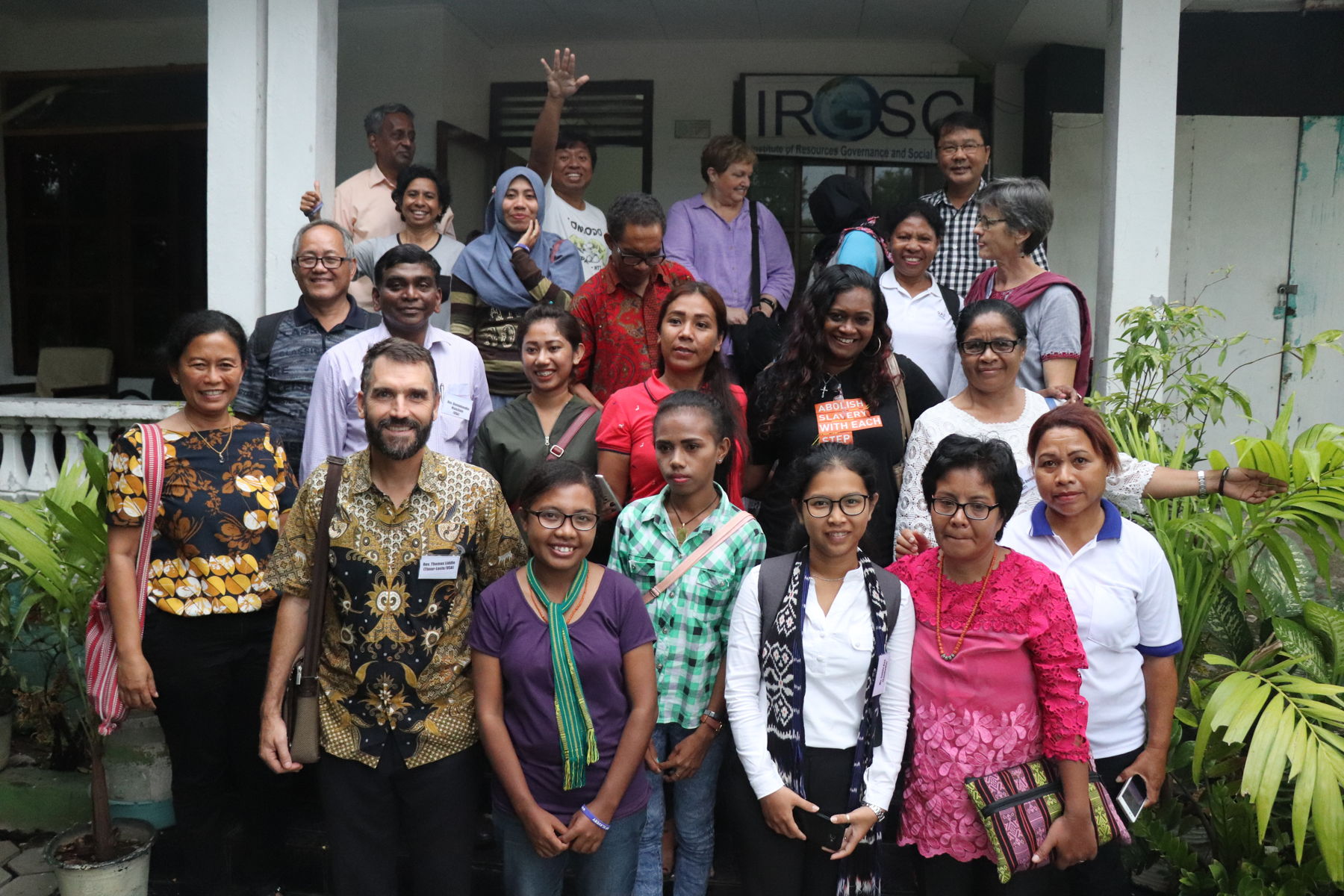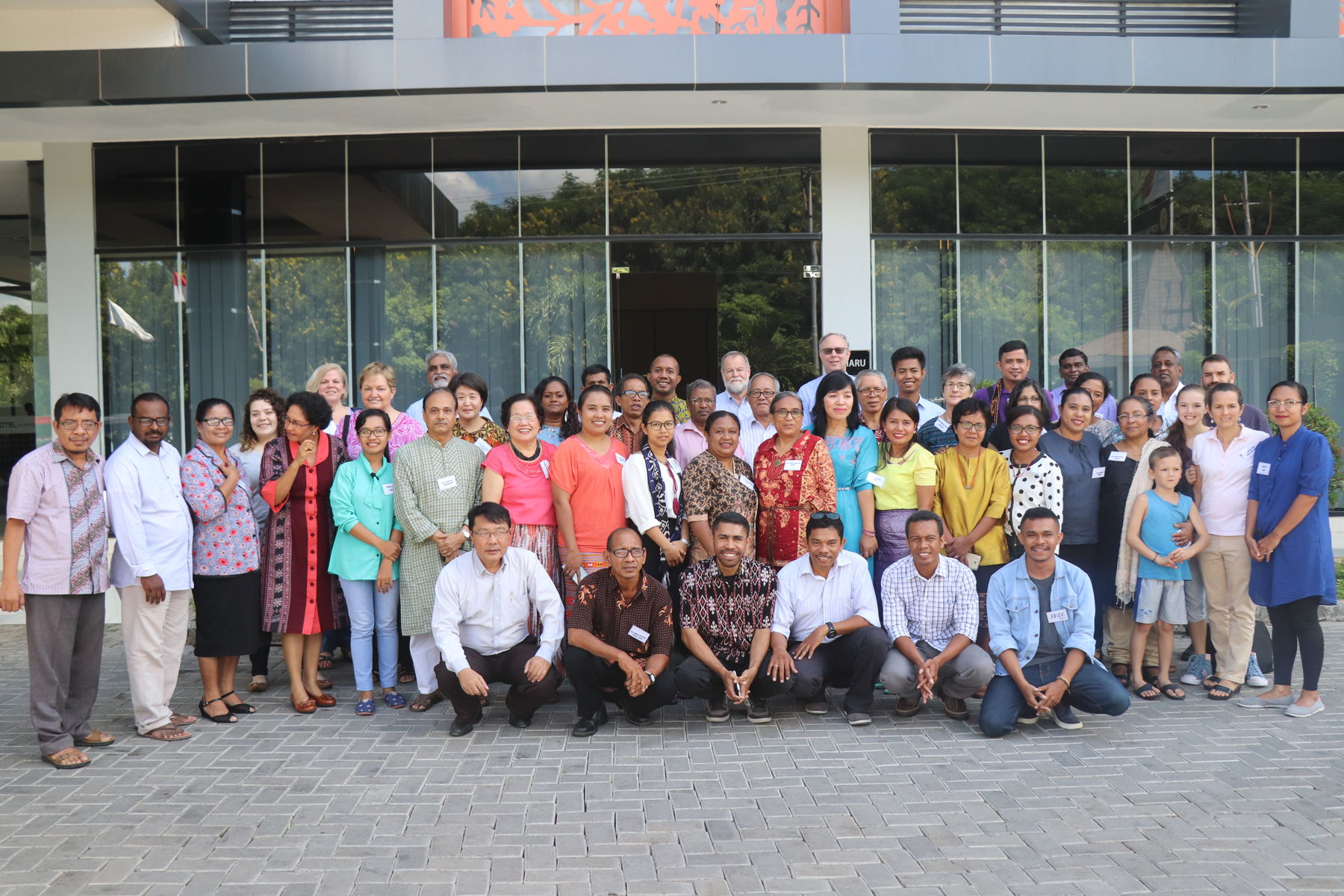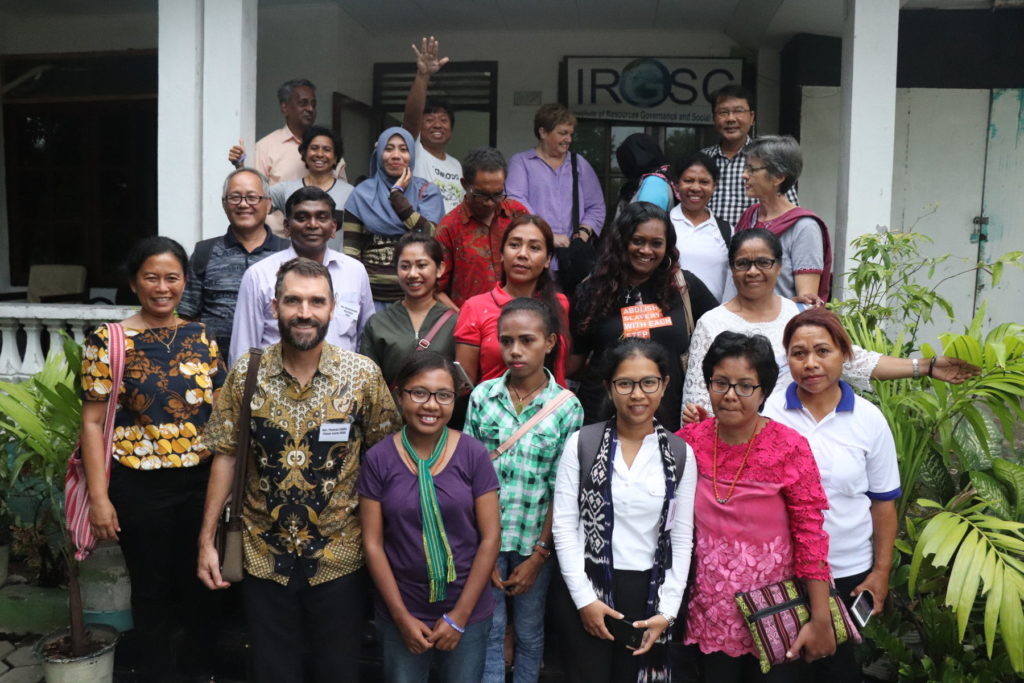Partnership for God’s Justice Conference: Anti Human Trafficking Conversations and Theological Reflection
 Partnership for God’s Justice: Anti Human Trafficking Conversations and Theological Reflection among GMIT and Global Ministries (USA) Partners
Partnership for God’s Justice: Anti Human Trafficking Conversations and Theological Reflection among GMIT and Global Ministries (USA) Partners
53 anti-human trafficking activists, social workers, pastors, and theologians from 11 countries—Australia, Bangladesh, Cambodia, Timor-Leste, India, Indonesia, Malaysia, Myanmar, Philippines, Sri Lanka, and the USA—met in Kupang, Indonesia April 5-9, 2018 for discussions and theological reflection.
Major Highlights
Human trafficking is a raw and open wound of our contemporary society. As a multi-billion dollar industry that impacts tens of millions of people worldwide, it thrives on the abuse of disempowered and impoverished people, and operates through a complex network of partners locally and across borders. Human trafficking is a sign of the moral decadence of our generation.
 Extractive and exploitative industrialization and ideologies of economic growth are major forces that cause and perpetuate this shameful practice in many parts of the world. Other causes of forced migration and human trafficking include labour export policies, domestic violence, denial of health care and educational opportunities, gender discrimination, religious extremism, and climate injustice.
Extractive and exploitative industrialization and ideologies of economic growth are major forces that cause and perpetuate this shameful practice in many parts of the world. Other causes of forced migration and human trafficking include labour export policies, domestic violence, denial of health care and educational opportunities, gender discrimination, religious extremism, and climate injustice.
Remaining silent implies complicity with and apathy towards unjust cultures of greed for power and wealth that overwhelm our world and allow crimes against humanity, especially against those who are made and kept poor and powerless, to continue. In a world dominated and plundered by such partnerships among forces of greed and evil, it is necessary for churches and Christians to actively create and nurture partnerships for life among people’s and survivors’ movements, civil society organizations, and all people of faith and goodwill. Such partnerships can enhance the current work of some churches that are responding to this issue by creating new space to learn from others.
Partnership for justice implies a commitment to uphold the sanctity and dignity of all people. It works to ensure security, freedom, and autonomy of communities. This partnership is multi-directional, and is inclusive of all who are committed to these values. It is authentic and transformative only when it is based on relationships of respect, trust, mutuality, and a common commitment for justice. This necessarily implies and involves partnering with victims by entering into their life worlds of struggle and hope.
 Partnership for justice assumes new meanings and expressions for affirming life and dignity, and resisting injustice and aggression. Sharing information, inter-regional exchange and cooperation, baseline studies, interfaith coalitions, and working with local and state governments are some ways to prevent human trafficking, and to heal and protect victims. While these may be commonly affirmed strategies, conference participants resolved to work together vigorously in new partnerships that were facilitated by their time together in Kupang.
Partnership for justice assumes new meanings and expressions for affirming life and dignity, and resisting injustice and aggression. Sharing information, inter-regional exchange and cooperation, baseline studies, interfaith coalitions, and working with local and state governments are some ways to prevent human trafficking, and to heal and protect victims. While these may be commonly affirmed strategies, conference participants resolved to work together vigorously in new partnerships that were facilitated by their time together in Kupang.
The church affirms that every human being is made in the image of God, and that God desires us to love and have compassion towards one another. Therefore, the church cannot but respond to the reality of suffering and dehumanization caused by human selfishness. Justice is love in action; indeed, seeking justice is not an option, but a necessary expression of authentic Christian witness.

